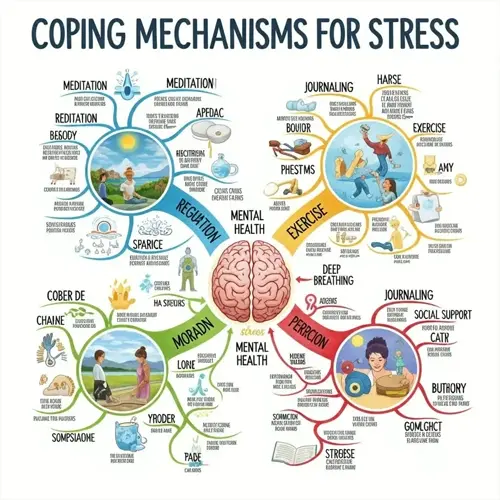How does meditation specifically target anxiety symptoms?

Written by
Gina Mason
Reviewed by
Prof. Benjamin Murphy, Ph.D.Anxiety imposes stress on the body and mind, which meditation directly counters. Science has proven that meditation affects both physiological systems and mental processes. This dual approach renders it unique in efficacy for the alleviation of anxiety. Specific neurological and hormonal changes accompany a feeling of relief.
Controlled breathing during meditation helps regulate cortisol, your primary stress hormone. Slow rhythmic breathing signals to your nervous system that you're safe. Reduce heart rate and blood pressure immediately. These benefits accumulate with practice, creating lasting benefits of cortisol regulation.
Amygdala Regulation
- Reduces fear center reactivity to perceived threats
- Decreases fight-or-flight responses to non-dangerous situations
- Creates calmer baseline emotional state over time
Thought Pattern Shifts
- Creates psychological distance from anxious thoughts
- Teaches non-judgmental observation of mental patterns
- Breaks cycles of catastrophic thinking effectively
Your prefrontal cortex develops and strengthens with enough practice, the area of the brain that is responsible for managing your emotions. A strong prefrontal cortex means you will have greater control when you notice anxiety, because you have created distance between triggers and your response, preventing automatic spiraling patterns.
While rumination compounds anxiety, mindfulness meditation is great for teaching you how to anchor yourself in the moment. Instead of following chains of constant worry, you recognize your thoughts as they pass by. This psychological detachment means you won't be taking anxious thoughts personally. You essentially build skill sets so you can navigate challenges without falling into emotional overwhelm.
Read the full article: Meditation and Anxiety: Your Complete Guide

